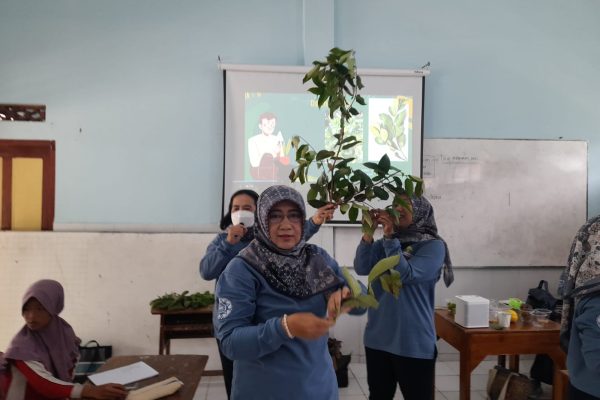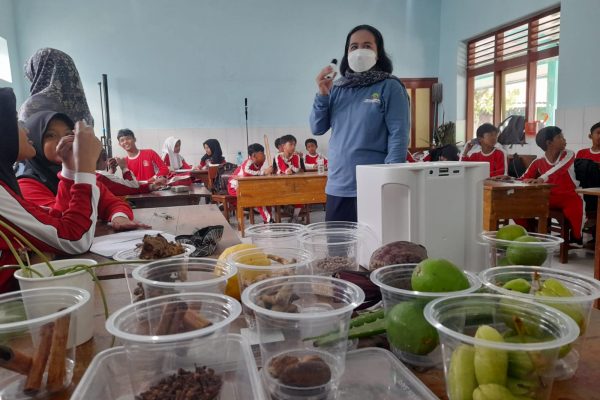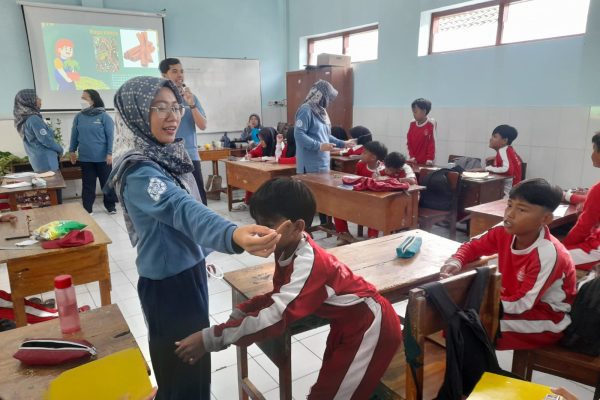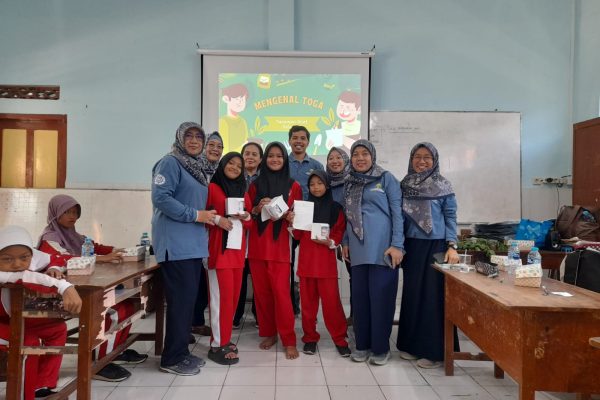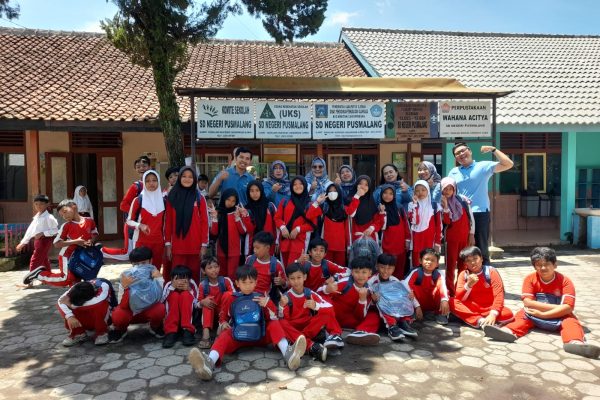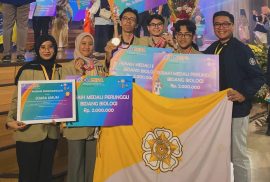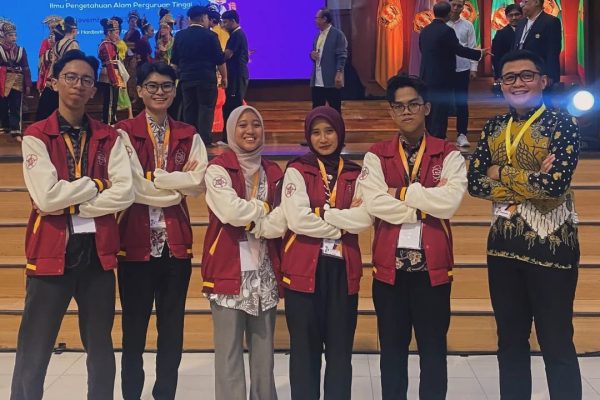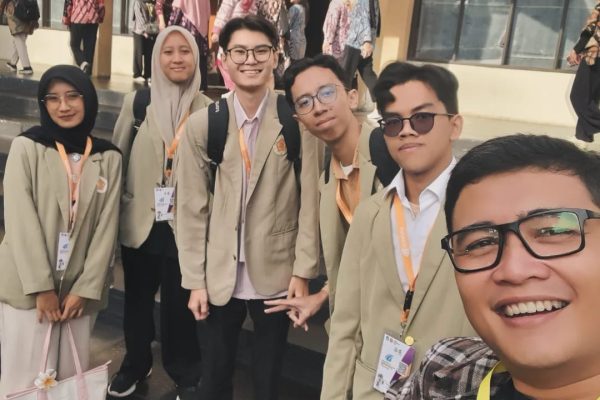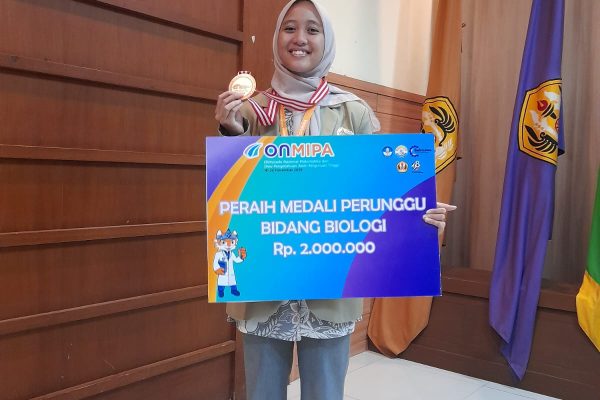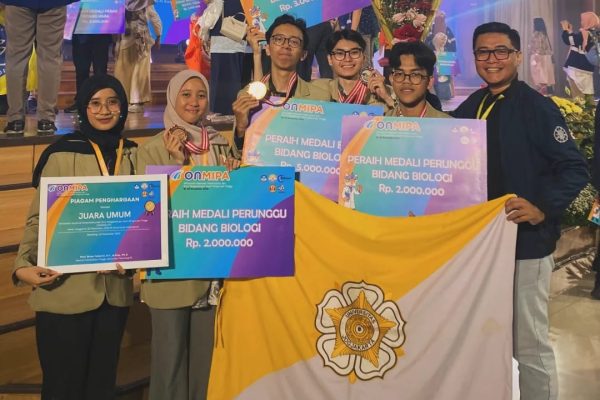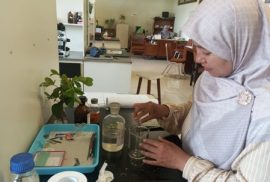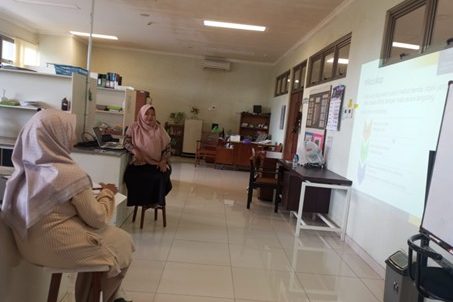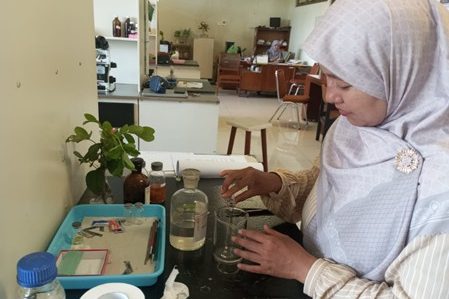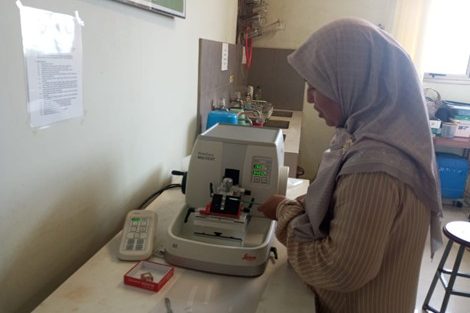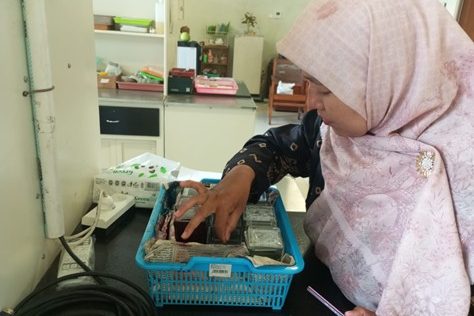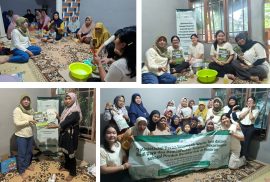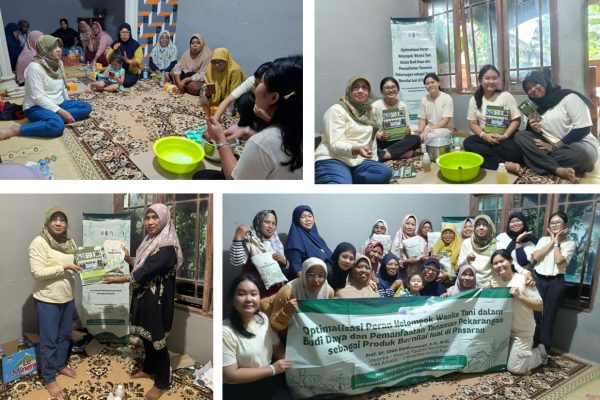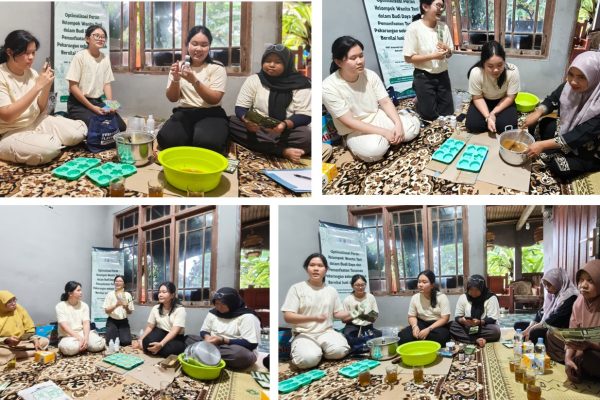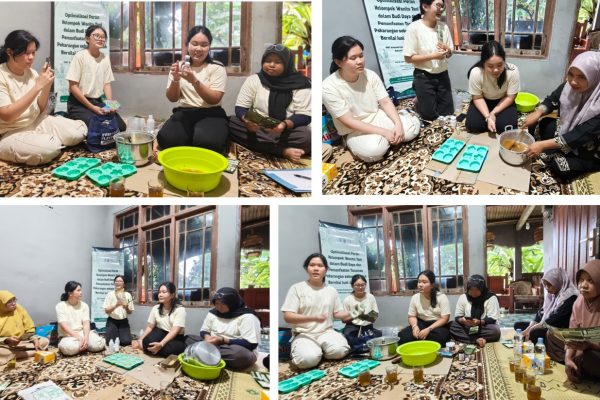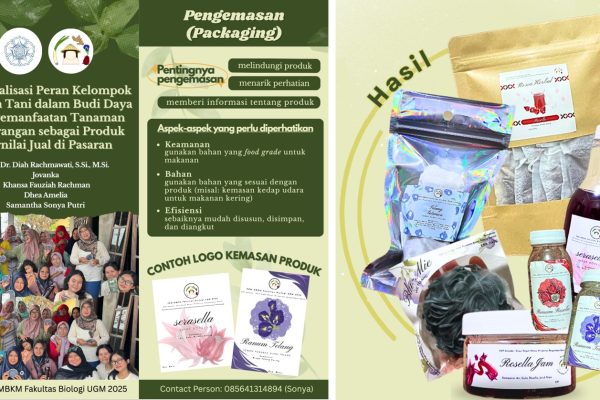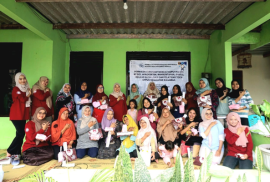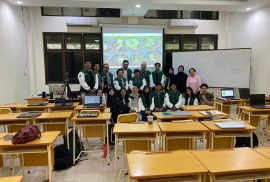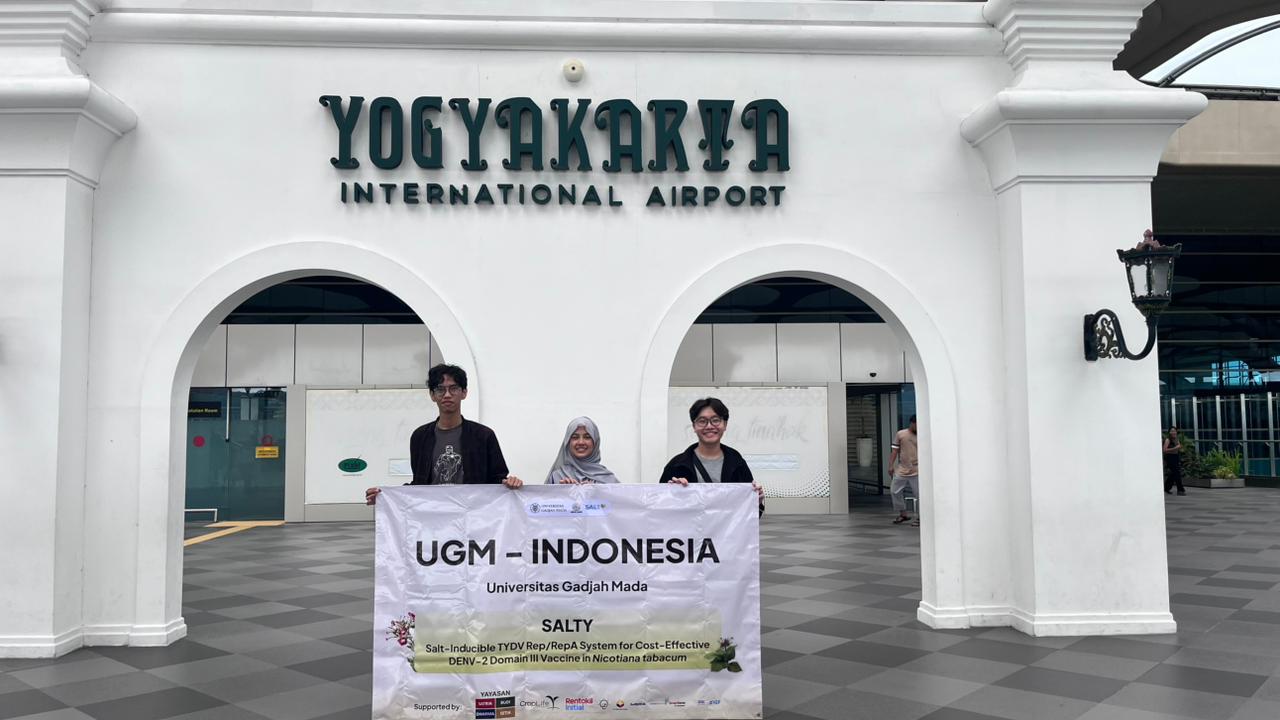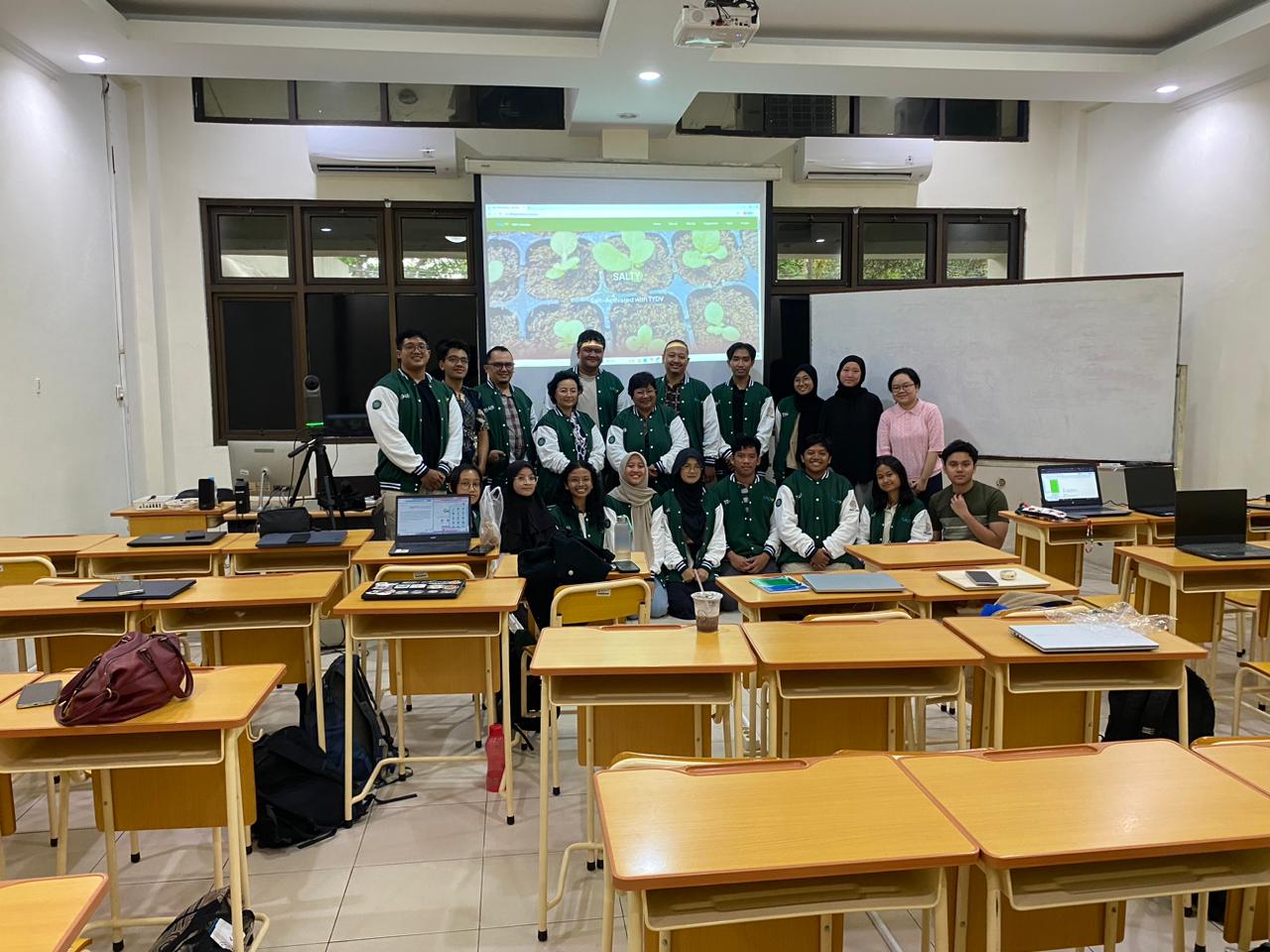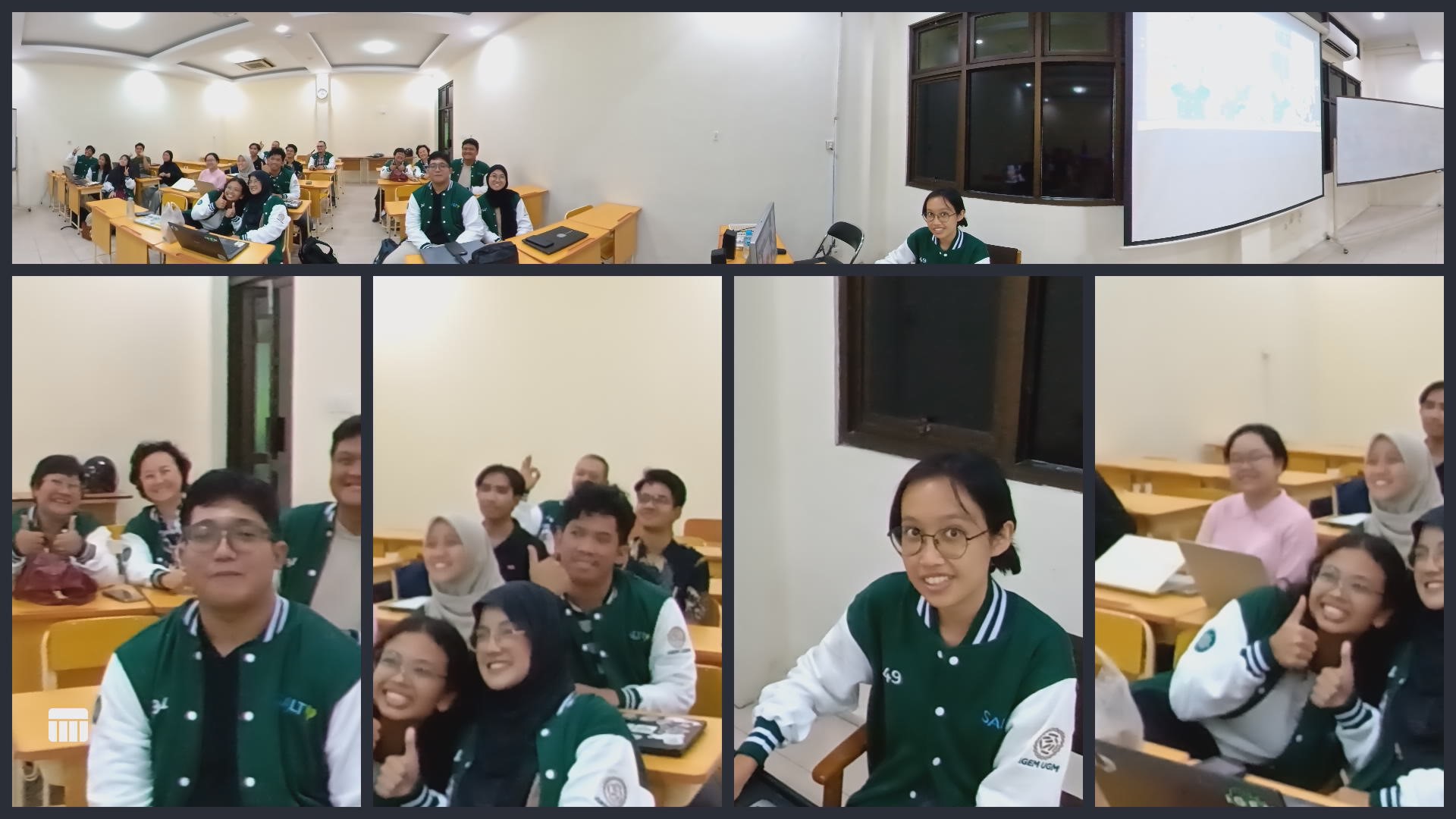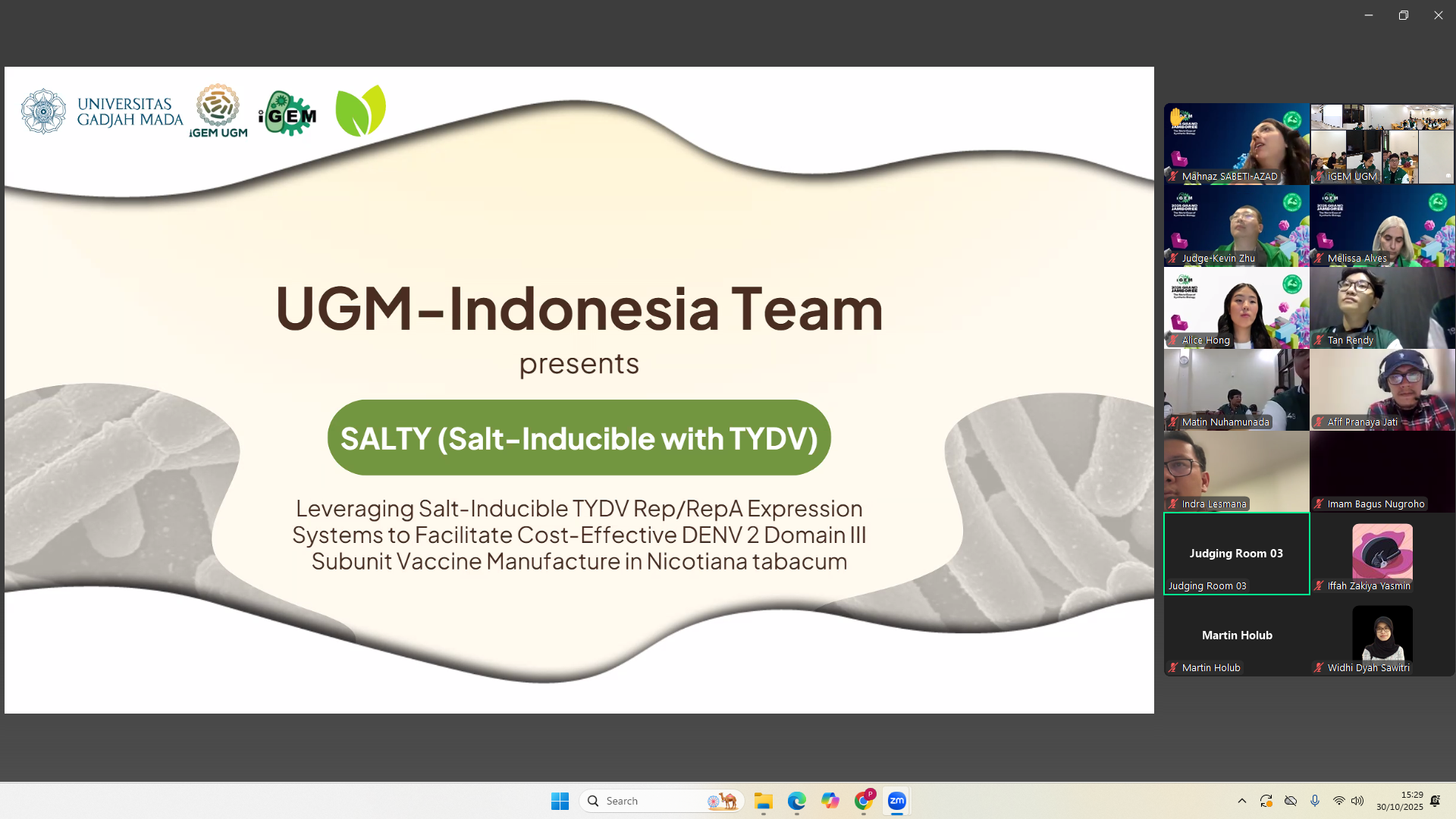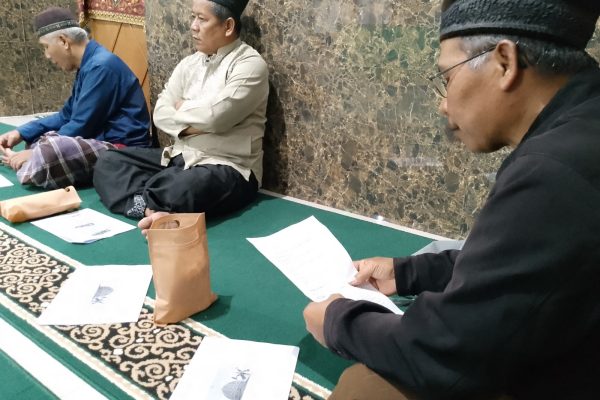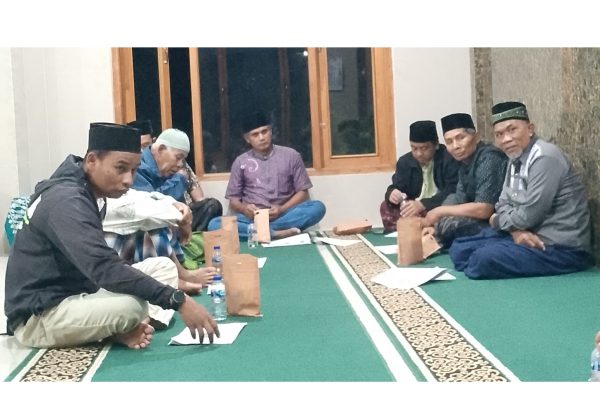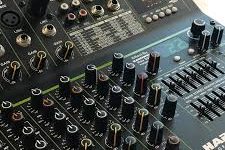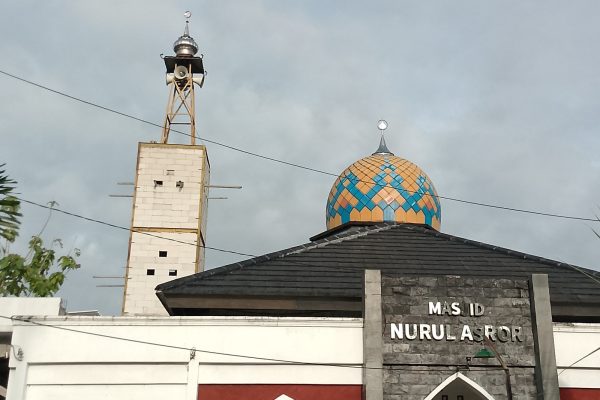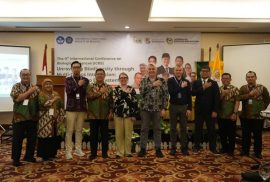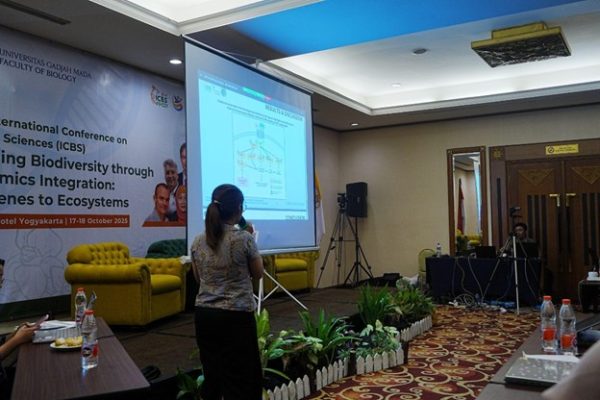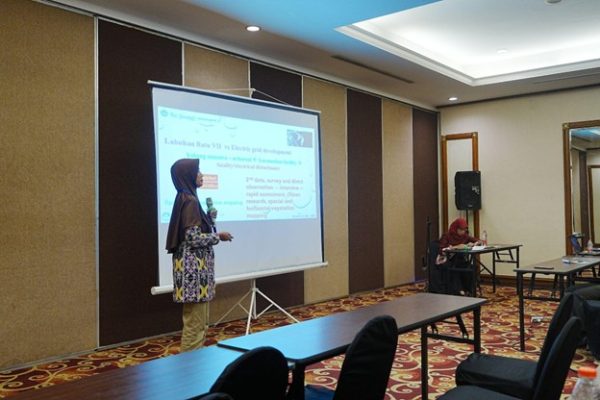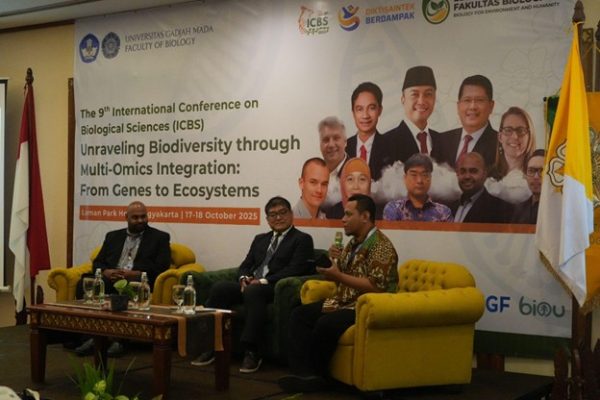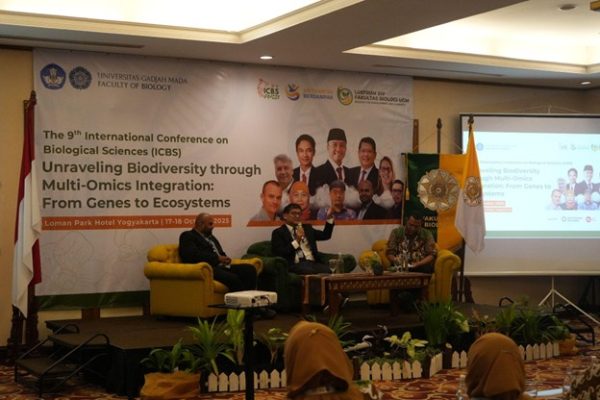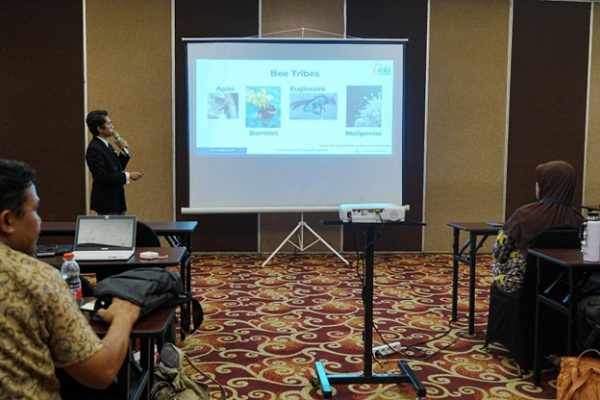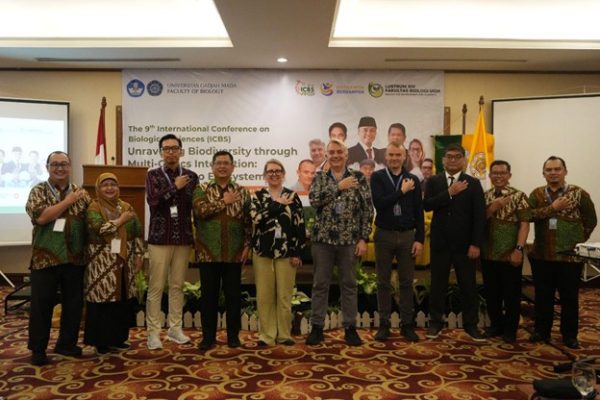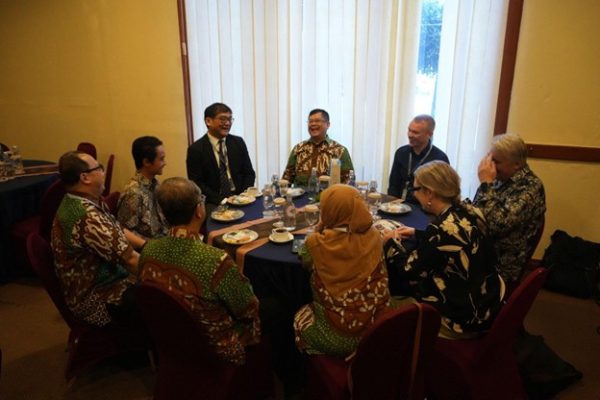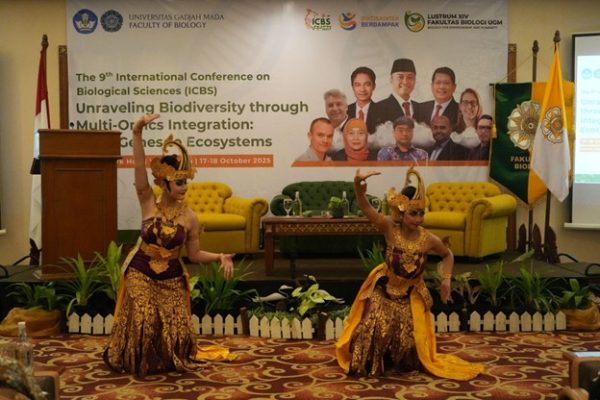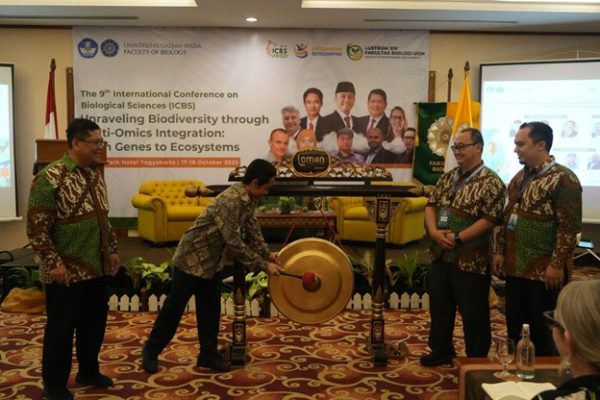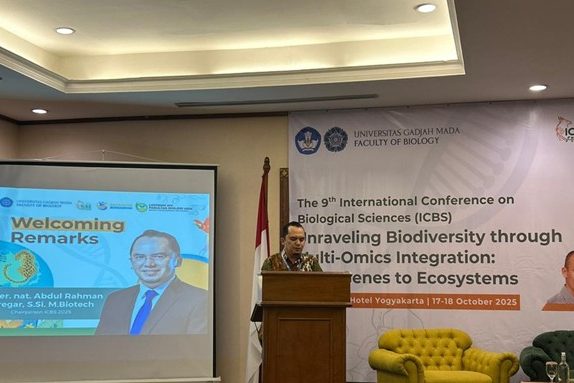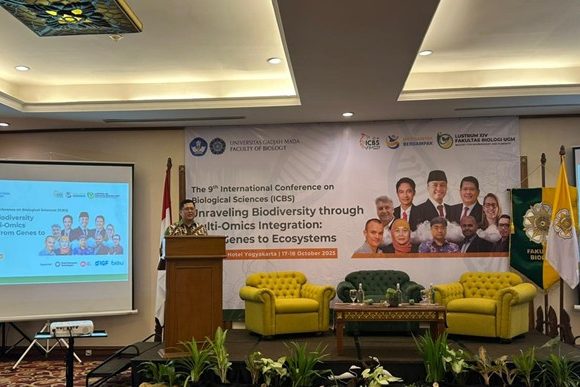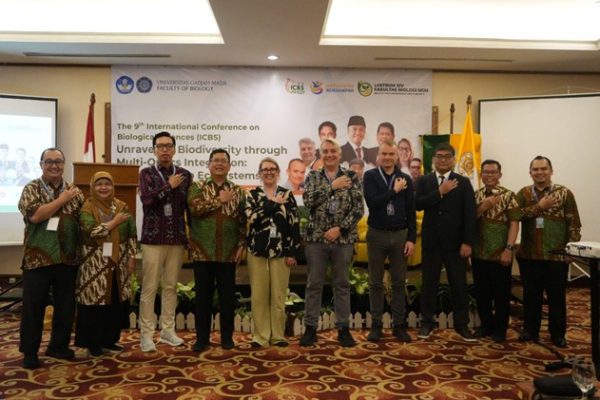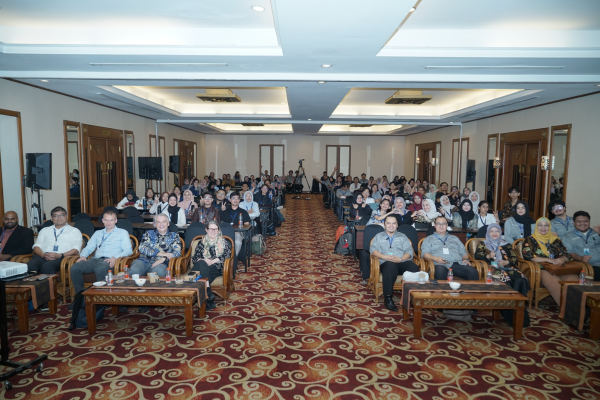SDG 3 : Establish Good Health and Well-Being
Universitas Gadjah Mada proudly secured the title of Overall Champion at the 2025 National Mathematics and Natural Sciences Olympiad (ONMIPA) held from 16–20 November 2025 at Universitas Padjadjaran (UNPAD), Bandung. This year’s competition brought together 251 students from 96 universities across Indonesia who had previously qualified through regional selection.
This achievement marks a historic moment for UGM, breaking the long-standing streak as runner up and reaffirming its position as a leading institution in science and mathematics education.
Among the outstanding accomplishments, the Faculty of Biology made a significant contribution through the success of Tsaqifa Zuhayra Emery Bagus, who earned a Bronze Medal in the national-level Biology category.
In total, UGM’s Biology team achieved: 1 Gold Medal; 1 Silver Medal and 2 Bronze Medals These results reflect the academic excellence, dedication, and hard work of UGM students and mentors, as well as the university’s commitment to nurturing future leaders in science.
The Faculty of Biology UGM extends its congratulations to all participating students and supervisors and expresses its gratitude to the entire academic community for their continuous support. May this achievement inspire further innovation and outstanding contributions to scientific advancement in Indonesia.
The production of natural TOGA soap from lemongrass by the Pengabdian kepada Masyarakat – Merdeka Belajar Kampus Merdeka (PkM-MBKM) team Faculty of Biology UGM 2025, chaired by Prof. Rina Sri Kasiamdari, S.Si., Ph.D. in the second phase of the PkM-MBKM program in Kepuh Kulon RT 001, Wirokerten, Banguntapan, Bantul through the production of soap using TOGA (Family Medicinal Plants) as raw material. This activity is a continuation of the PkM-MBKM program that was previously implemented from February to June 2025. The team involved five students, namely Swastikhansa Parahita Sulistyaningrum, Afrina Syah Putri, Isna Kuminingrum, Asitya Fitri Miadi, and Amyra Asa Nurhanifa, with the aim of increasing public awareness about the use of TOGA plants through the innovation of TOGA-based soap, especially lemongrass, which is easily available, as an effort to support skin health and can be used by various groups, including children. This event marked the fifth and final activity of the PkM-MBKM program in RT 001 Kepuh Kulon. It was held on Sunday, November 2, 2025, from 9:00 a.m. to 12:00 p.m. at the residence of the RT Head, Mr. Zamzuri. The event was enthusiastically attended and carried out by 20 society and Mr. Sunartono, the Head of Kepuh Kulon Hamlet, who opened the event by emphasizing the importance of utilizing TOGA for family health and encouraging residents’ independence in continuing the program of making natural soap from easily available TOGA. Prof. Rina also highlighted the benefits of the innovative soap made from lemongrass and olive oil, which is safe for children and healthy for the skin, while stressing the importance of community solidarity in enhancing creativity and the local economy.
The community service activities included socialization on making lemongrass soap and practicing making natural soap from lemongrass, as well as socialization on digital marketing. The socialization on making lemongrass soap was carried out by providing information on what medicinal plants are, their uses, their contents and benefits when used as ingredients for natural soap (lemongrass), the tools and materials needed, and how to make the soap. The digital marketing socialization was carried out by providing information about the objectives of digital marketing, creating an account on one of the online selling platforms, how to sell online, and tips on how to make products known to the wider community. After the workshop, there will be a quiz for residents and door prizes will be given out. At the end of the activity, participating village partners will be given souvenirs as a token of appreciation for their participation.
The PkM-MBKM team provided a set of soap-making tools that are expected to be used for practice and as souvenirs as a form of appreciation or proof of participation for village partners. The 2025 PkM-MBKM program is expected to provide information on processing TOGA into products that are beneficial to health and can improve the community’s economy. This activity supports SDG 3: Good Health and Well-being, SDG 6 Clean Water and Sanitation, SDG 8 Decent Work and Economic Growth, and SDG 12 Responsible Consumption and Production.
UGM-Indonesia’s 2025 project advances low-cost biomanufacturing of a DENV-2 Domain IIIsubunit vaccine in Nicotiana tabacum (tobacco). The team’s approach leverages salt-inducibleTYDV Rep/RepA expression systems to drive efficient protein production in plants. This effort isan avenue that could make dengue vaccination more accessible across resource-limited settings.The team’s project focuses on an everyday problem with big impact: making dengue protectionmore affordable and easier to produce. In simple terms, the students are exploring how commonplants can act like tiny factories. If successful, this approach could help lower costs and makeaccess to protection more equitable.
ny families every year,and solutions that are practical, safe, and scalable can strengthen public health. The UGMstudents showed how young innovators from Indonesia can contribute ideas that make a realdifference on the global stage.
by the PkM-MBKM Team of the Faculty of Biology UGM
This year’s conference features two distinguished keynote speakers:
- Dr. Thomas Sicheritz Ponten, Center for Evolutionary Hologenomics, The Globe Institute – Faculty of Health and Medical Sciences, University of Copenhagen, Denmark; and
- Thorunn Helgason, Chair in Ecology, School of Biological Sciences, University of Edinburgh, Scotland.
In addition, ICBS 2025 presents invited speakers from leading institutions across the world, including:
- Prof. Dr. Bent Petersen, Center for Evolutionary Hologenomics, The Globe Institute – University of Copenhagen, Denmark;
- Dra. Tuty Arisuryanti, M.Sc., Ph.D., Department of Tropical Biology, Faculty of Biology, Universitas Gadjah Mada;
- Chiharu Nakashima, Ph.D., Graduate School of Bioresources, Mie University, Japan;
- Madya Ts. Dr. Muhammad Abdul Latiff Bin Abu Bakar, Faculty of Applied Sciences and Technology, Universiti Tun Hussein Onn Malaysia; and
- Riza Arief Putranto, D.E.A., Indonesian Oil Palm Research Institute (IOPRI), RPN Holding PTPN III.
Beyond its scientific objectives, ICBS 2025 also contributes to the advancement of the United Nations Sustainable Development Goals (SDGs), particularly:
SDG 13: Climate Action – promoting research on adaptation and mitigation to climate change,
SDG 14: Life Below Water and SDG 15: Life on Land – supporting biodiversity conservation and sustainable management of terrestrial and aquatic ecosystems,
SDG 3: Good Health and Well-being – advancing biotechnological and genomic research that benefits human and environmental health, and
SDG 17: Partnerships for the Goals – fostering global scientific collaboration among Universitas Gadjah Mada, the Consortium of Indonesian Biologists (KOBI), and Universiti Tun Hussein Onn Malaysia.


